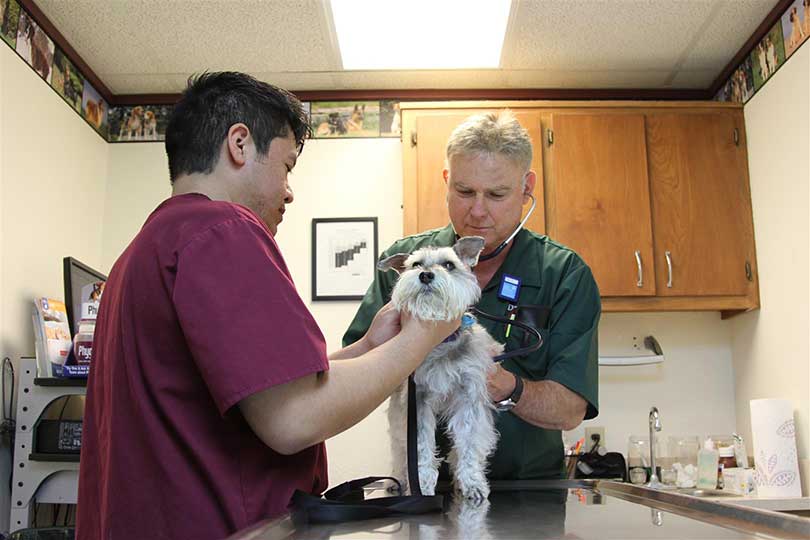A highly-contagious respiratory infection that affects dogs has been confirmed in Texas. The Texas A&M Veterinary Medical Diagnostic Laboratory (TVMDL) has confirmed five cases of Canine Influenza Virus (CIV).
Two cases have been confirmed in Harris County and one case each has been confirmed in Fort Bend, Travis and Hood counties, according to Stacy Morris, assistant agency director at TVMDL.
CIV, or dog flu, is still an emerging disease. Most dogs in the United States have not been exposed to it and lack immunity to the infection if exposed to it.
Symptoms include: high fever, loss of appetite, coughing, nasal discharge and lethargy.
Most infected dogs display a mild form of CIV. The most common clinical sign is a persistent cough for 10-12 days despite treatment with antibiotics and cough suppressants.
Virtually all dogs exposed with CIV become infected, but not all show symptoms. According to TVMDL, only 80 percent develop clinical signs. The 20 percent that are infected but show no symptoms can still shed the virus and spread the infection.
CIV is spread from dog-to-dog, but an infected dog can contaminate food bowls and other surfaces with CIV.
There is no evidence to date that CIV can be transmitted to humans.
In areas where the virus is active, TVMDL reports animals should avoid places where dogs congregate like dog parks, grooming salons, kennels and day cares. Extra precautions should be taken with puppies, elderly or pregnant dogs and dogs that are immuno-compromised.
TVMDL encourages dog owners to talk to their veterinarian to assess their dog’s risk.
The first two cases of CIV, confirmed earlier this month in Harris County, have been verified as H3N2. That’s the same strain of CIV confirmed in Florida and Georgia earlier this year.
Vaccines are available for both the H3N8 and H3N2 strains of CIV.
Fatal cases of pneumonia associated with CIV have been reported, but the fatality rate is low, according to TVMDL.
Most dogs recover from CIV in two to three weeks.
TVMDL offers tests that can detect both the H3N2 and H3N8 strains of CIV.
Information is available at: https://tvmdl.tamu.edu/2017/06/02/canine-influenza-diagnosed-two-texas-dogs/.
The TVMDL page on CIV, which includes updates on cases found in Texas, is here: https://tvmdl.tamu.edu/canine-influenza-virus/.

